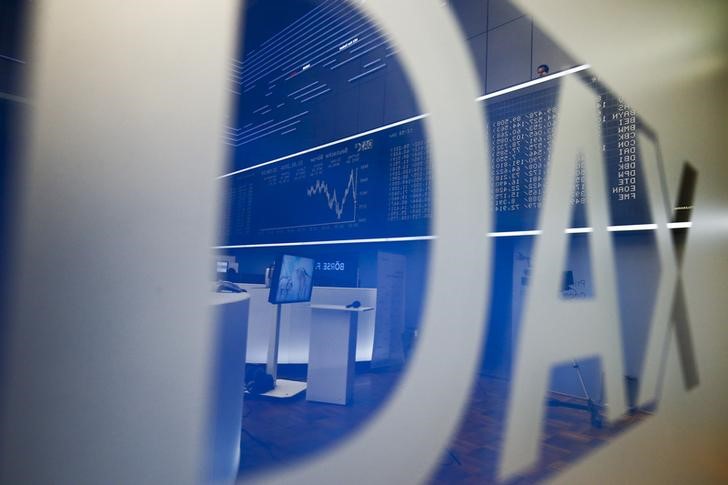Bitcoin price today: surges to $122k, near record high on US regulatory cheer
Investing.com - European stocks rose Monday, starting the new week on a positive note on hopes for more trade agreements as U.S. President Donald Trump’s July 9 tariff deadline draws nearer.
At 03:05 ET (07:05 GMT), the DAX index in Germany gained 0.5%, the CAC 40 in France climbed 0.2% and the FTSE 100 in the U.K. rose 0.1%.
Sentiment boosted by trade optimism
The positive start for Europe comes after similar sentiment in Asia-Pacific markets overnight, continuing the optimism generated by last week’s announcement that the U.S. had finalized a trade deal with China, completing the terms outlined in Geneva talks last month.
Additionally, Canada announced on Monday it will rescind its Digital Services Tax, clearing the way for the resumption of trade and security negotiations with the United States, with both sides aiming to strike a deal by July 21.
Finance Minister François-Philippe Champagne said the government will halt the June 30 collection of the DST and introduce legislation to repeal the Digital Services Tax Act, which had targeted large multinational tech firms operating in Canada.
The tax, introduced in 2020, was seen by Washington as a key obstacle to broader trade discussions.
Back in Europe, Bloomberg reported late last week that European Commission President Ursula von der Leyen told EU leaders during a closed-door summit that she believes a deal can be secured before the July 9 deadline, when significant tariffs are set to take effect on both sides.
If no agreement is reached by then, the U.S. plans to impose a 50% tariff on nearly all EU products, while the European bloc is prepared to implement its own set of countermeasures.
German retail sales slumped in May
The need to avoid the damaging impact of a trade war was amply illustrated earlier Monday, as German retail sales fell by 1.6% in May compared with the previous month, suggesting that consumers were still struggling in the eurozone’s largest economy.
Data also showed that China’s manufacturing sector shrank at a milder-than-expected pace in June, as domestic producers continued to struggle with weak external demand and elevated U.S. trade tariffs.
In Japan, data showed that factory output grew at a much slower pace than expected in May amid weaker external demand, primarily due to U.S. tariffs on automobiles.
Back in Europe, investors will also be keeping an eye on German and Italian CPI data, after eurozone inflation dipped to 1.9% year-over-year in May, down from 2.2% in April and below the ECB’s 2% target.
Despite cutting rates by 25 basis points in June, ECB President Christine Lagarde struck a surprisingly hawkish tone, indicating that the rate-cutting cycle could be nearing its end or may already be complete.
Polar Capital sees profit boost
In the corporate sector, Polar Capital (LON:POLR) reported a 27% increase in core operating profit for the financial year ended March 31, with the asset manager stating average assets under management rose 17%, helping to lift net management fees.
Crude slips lower
Crude prices edged lower Monday as an easing of geopolitical risks in the Middle East and the prospect of another OPEC+ output hike in August weighed.
At 03:05 ET, Brent futures dropped 0.4% to $66.53 a barrel and U.S. West Texas Intermediate crude futures fell 0.6% to $65.12 a barrel.
Both benchmarks posted their biggest weekly decline since March 2023 last week, but they are set to finish higher in June with a second consecutive monthly gain of more than 5%.
The Organization of Petroleum Exporting Countries and allies, known as OPEC+, is set to meet on July 6 and is widely expected to agree to another monthly increase in output levels, the fifth since the group started unwinding production cuts in April.
